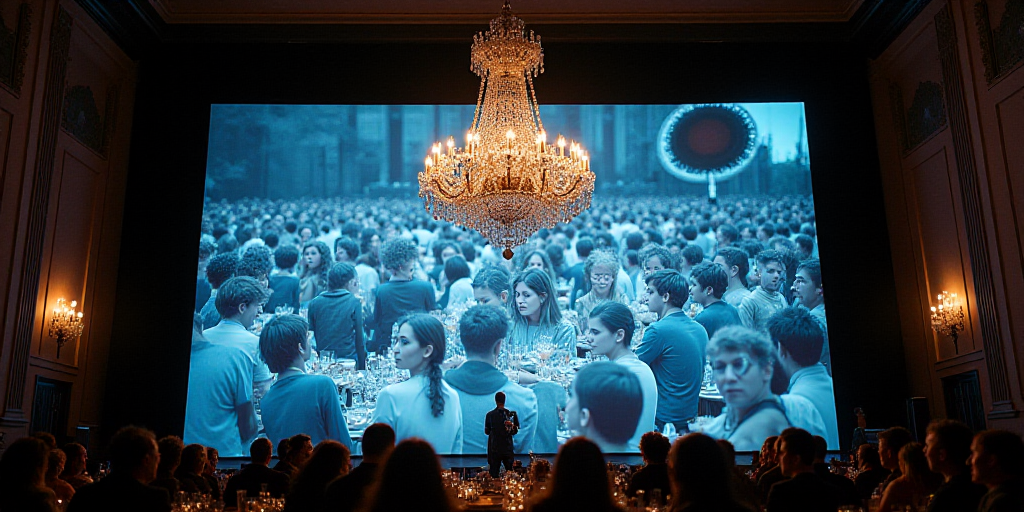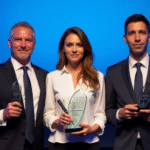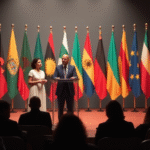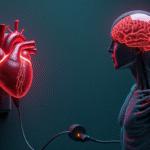Recipients: John Clarke, Michel Devoret, and John Martinis
The 2025 Nobel Prize in Physics has been awarded to American scientists John Clarke, Michel Devoret, and John Martinis for “experiments that revealed quantum physics in action,” as announced by the Nobel Committee.
Impact on Quantum Technology Development
The Royal Swedish Academy of Sciences stated, “This year’s Physics Nobel Prize offers opportunities to develop the next generation of quantum technology, including quantum cryptography, quantum computing, and quantum sensors.”
Groundbreaking Experiments in the 1980s
Clarke, Devoret, and Martinis conducted experiments in the mid-1980s using a superconducting electronic circuit, demonstrating that quantum mechanical properties could be realized on a much larger macroscopic scale.
Quantum Technology in Daily Life
Quantum technology is now ubiquitous, with computer microchips’ transistors being a commonplace example.
“I’m completely stunned. I never thought for a moment that this could be the basis of a Nobel Prize,” Clarke said in a phone interview during the Nobel press conference.
“I’m talking to you on my cell phone, and I suspect you are too, and one of the underlying reasons that cell phone works is all this work.”
Background of the Laureates
John Clarke, born in the UK, is a professor at the University of California, Berkeley, USA.
Michel Devoret, born in France, is a professor at Yale University and the University of California, Santa Barbara, where John Martinis also holds a professorship.
John Martinis, an American, previously led Google’s Quantum Artificial Intelligence Laboratory until his resignation in 2020.
Nobel Prize Details
The Nobel Prize is awarded by the Royal Swedish Academy of Sciences and includes a prize amount of 11 million Swedish kronor (approximately $1.2 million) to be divided among the laureates if there are multiple winners, which is common.
Established by Alfred Nobel’s will, the Nobel Prizes recognize annual achievements in science, literature, and peace since 1901 (with occasional interruptions). Economics was later added as a distinct category.
Physics was the first category mentioned in Nobel’s will, reflecting its prominence during his time. Today, the Nobel Prize in Physics remains the most prestigious award in the field.
Notable past Physics laureates include influential figures in scientific history such as Albert Einstein, Pierre and Marie Curie, Max Planck, and Niels Bohr, a pioneer of quantum theory.
Last year, American scientist John Hopfield and British-Canadian Geoffrey Hinton were awarded the Physics Nobel for their advancements in machine learning, which fueled the rise of artificial intelligence—a development about which both have expressed concern.
Nobel Prize Schedule
Following tradition, the Physics Nobel is the second prize awarded this week, after two American and one Japanese scientists won the Medicine Prize for their advancements in understanding the immune system. The Chemistry Prize will be announced on Wednesday.
The Nobel ceremony in Stockholm on December 10, the anniversary of Alfred Nobel’s death, will present the Science, Literature, and Economy prizes to the laureates. The event will be followed by an opulent banquet at the Stockholm City Hall.
The Peace Prize, announced on Friday, will be awarded in a separate ceremony in Oslo.
Key Questions and Answers
- Who are the 2025 Nobel Prize in Physics laureates? John Clarke, Michel Devoret, and John Martinis
- What are their contributions? They conducted experiments that demonstrated quantum mechanical properties on a macroscopic scale, paving the way for future quantum technology advancements.
- What is the impact of their work? Their research has laid the foundation for developing next-generation quantum technologies, including quantum cryptography, computing, and sensors.
- What are some examples of quantum technology in daily life? Computer microchips’ transistors are a common example of quantum technology.
- What is the Nobel Prize amount? 11 million Swedish kronor (approximately $1.2 million), divided among laureates if there are multiple winners.






